Microsoft Surface Pro: giving the iPad Pro a serious challenge for the first time
I've been wondering why Apple released its M4 chip in its new iPad Pro earlier this month when it hadn't even announced its M3 Ultra chip, but after attending Microsoft's Copilot+ PC Showcase and playing around with the new Microsoft Surface Pro, it makes a lot more sense.
The Surface Pro is a gorgeous device that can function as both a laptop and a tablet, easily putting it in the running as the best 2-in-1 laptop on the market, and now that it's packing a Qualcomm Snapdragon X Elite SoC, Microsoft might very well have a device that can take on the iPad Pro in a very real way.
Like the Microsoft Surface Laptop, the Surface Pro runs on an Arm-based processor which looks to be very similar to the Apple M-series of chips, so it's entirely possible that we'll get Apple M-series performance out of these too.
Since Windows wasn't originally built with Arm in mind, and architectural differences translated into poor performance for 'Windows on Arm' in the past, Windows on Arm devices in the past weren’t great - so could this new generation finally change that?

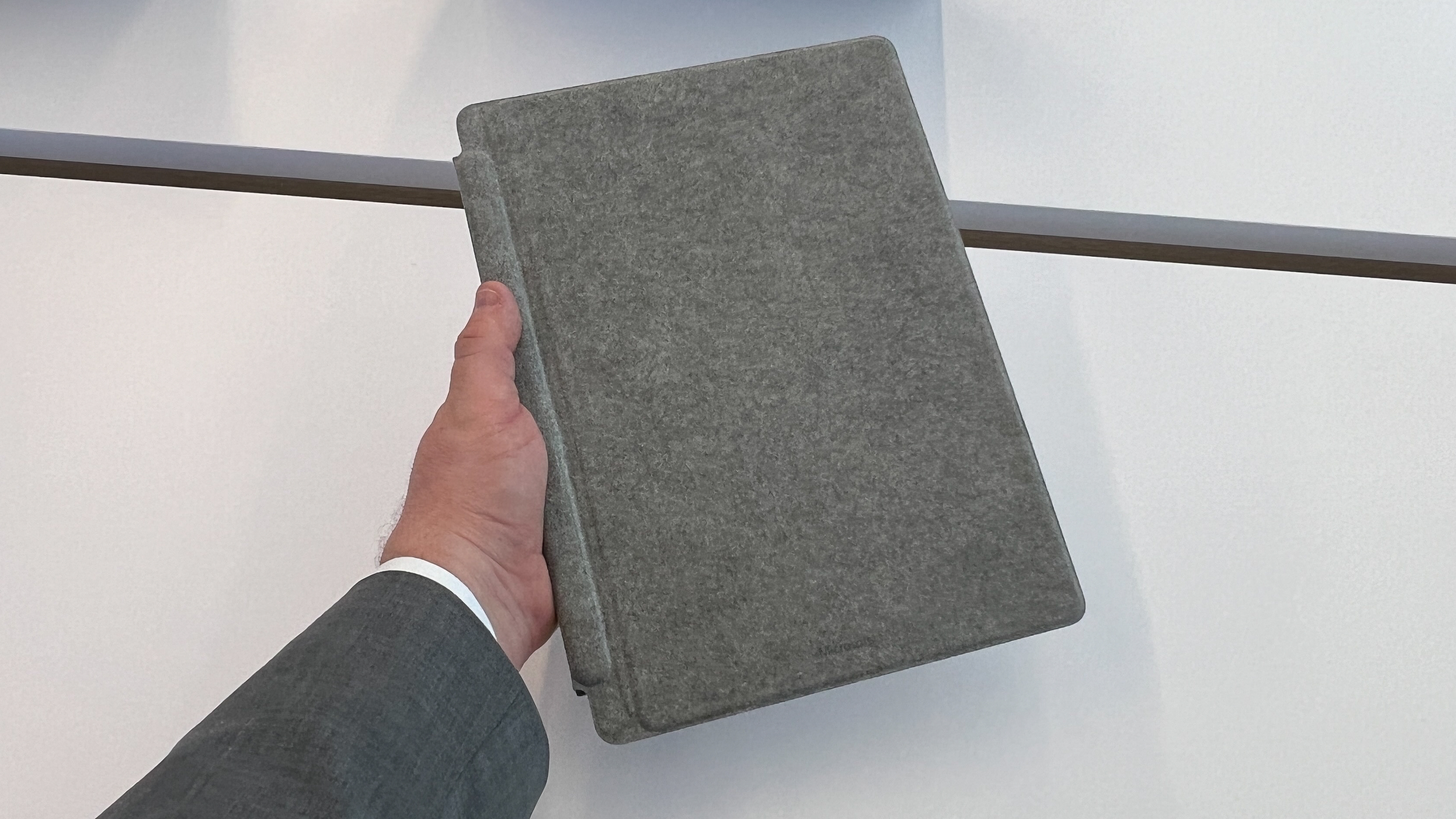
After my time with the Surface Pro, these problems look like they've been dramatically improved, though it's too soon to say whether they've been properly fixed until I get one in hand for independent benchmarking.
However, with that caveat out of the way, the difference between the new Surface Pro and previous Windows on Arm devices is night and day, which puts the Surface Pro in a very competitive position vis-a-vis the newly released iPad Pro with M4 chip.
For one, the Surface Pro uses a fully-functioning Windows 11 operating system, unlike the iPad Pro, which uses iPadOS, a beefier version of Apple's mobile operating system for its iPhone, but not nearly as capable as macOS. This alone is going to make the Surface Pro a much more compelling device for those who need the robustness of a PC operating system.
The Surface Pro, which is available for preorder now, comes in two versions, one with an OLED display and one without.
There's wiggle room here to configure your RAM and Storage capacities, but just be wary that the price quickly scales up right alongside.
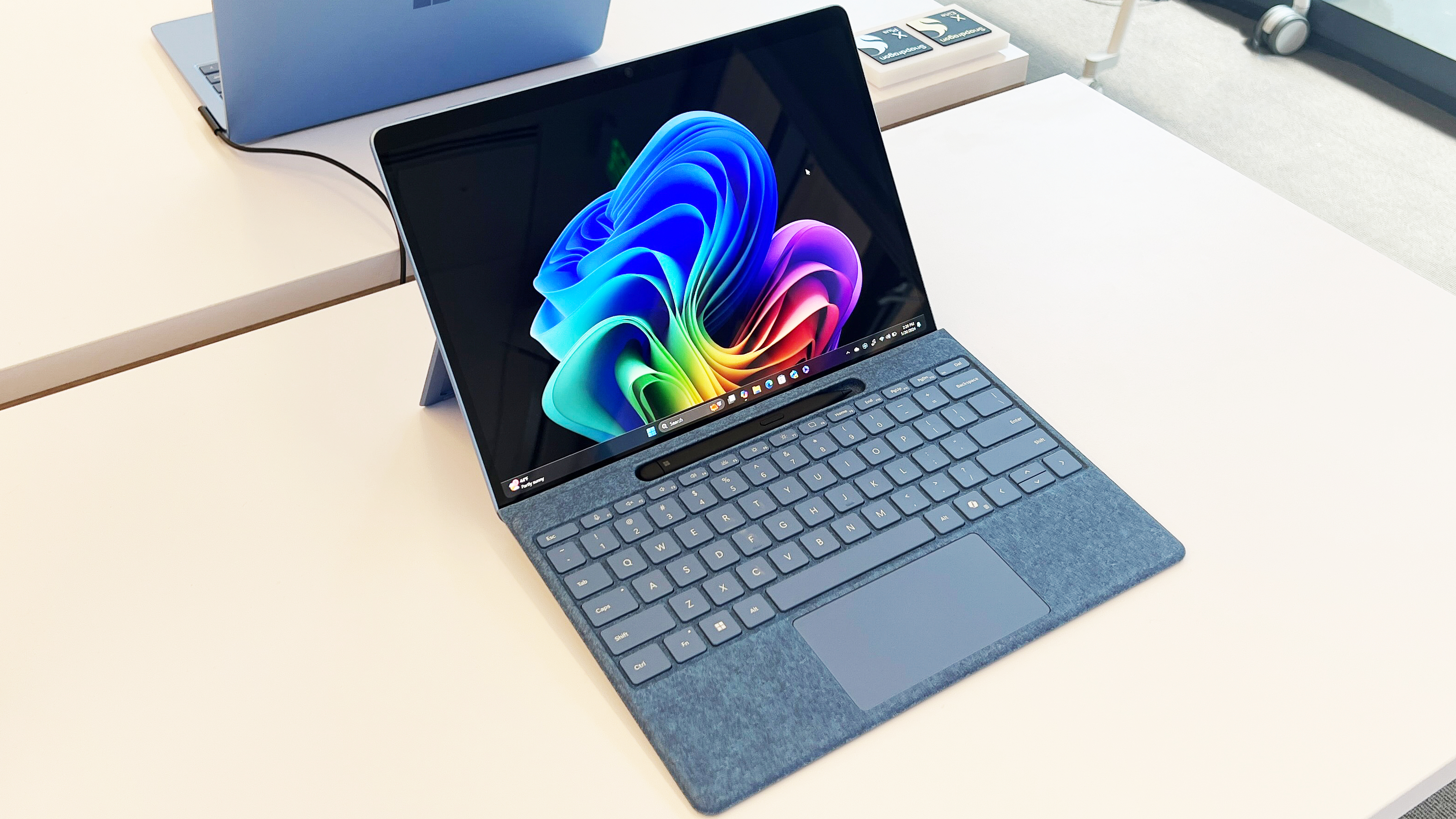
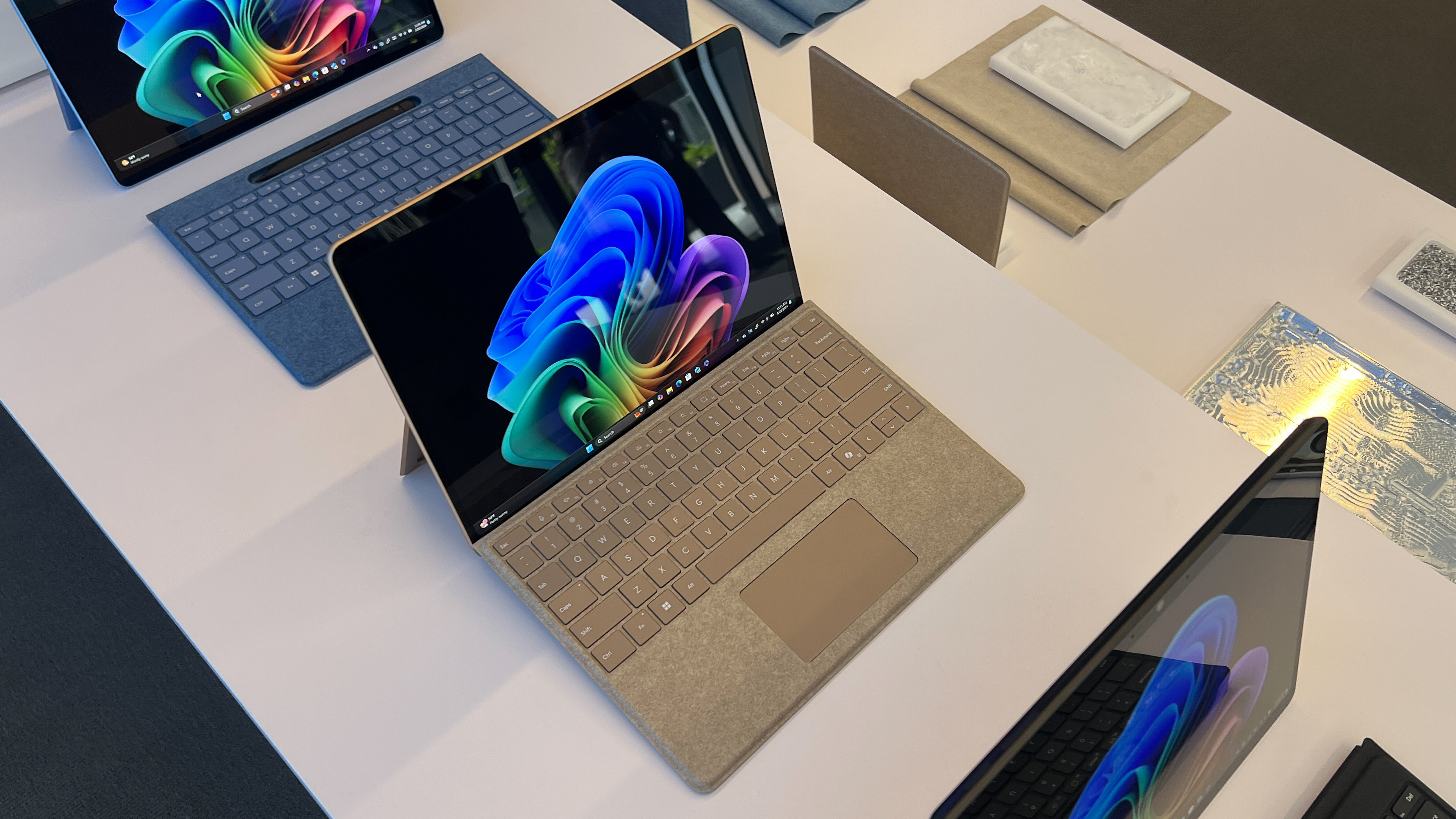
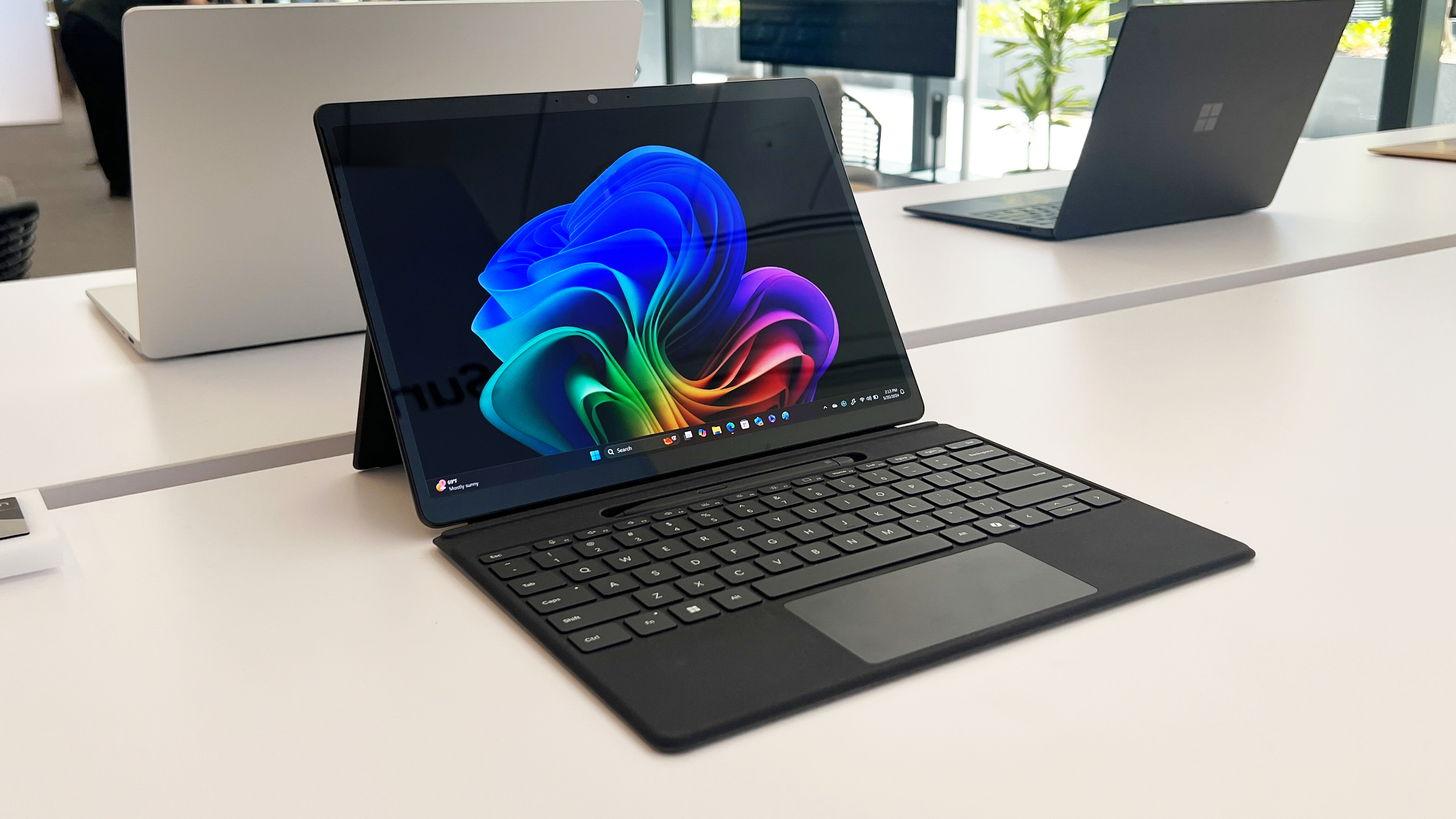
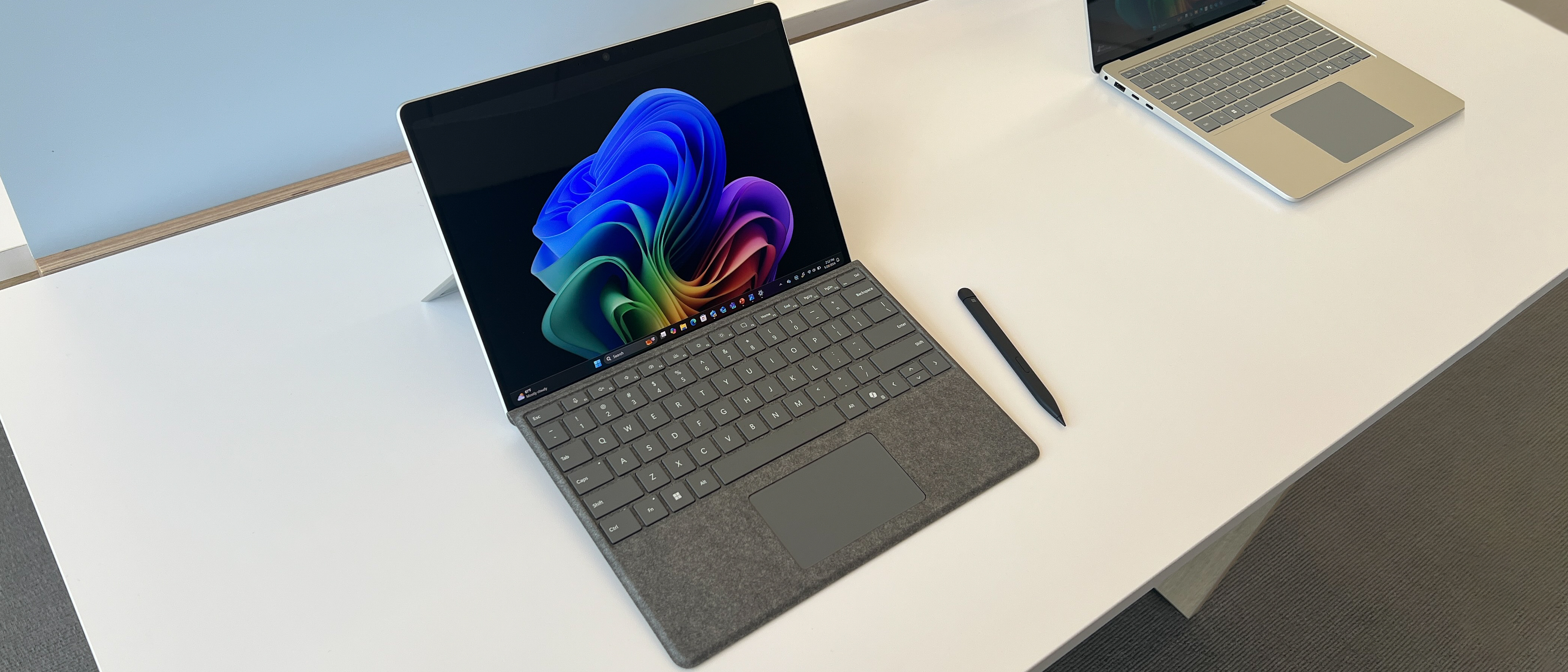
There are also four colorways: Black, Platinum, Dune, and my personal favorite, Sapphire. The Surface Pro is very lightweight and is easy to manage, and it has two USB-C ports.
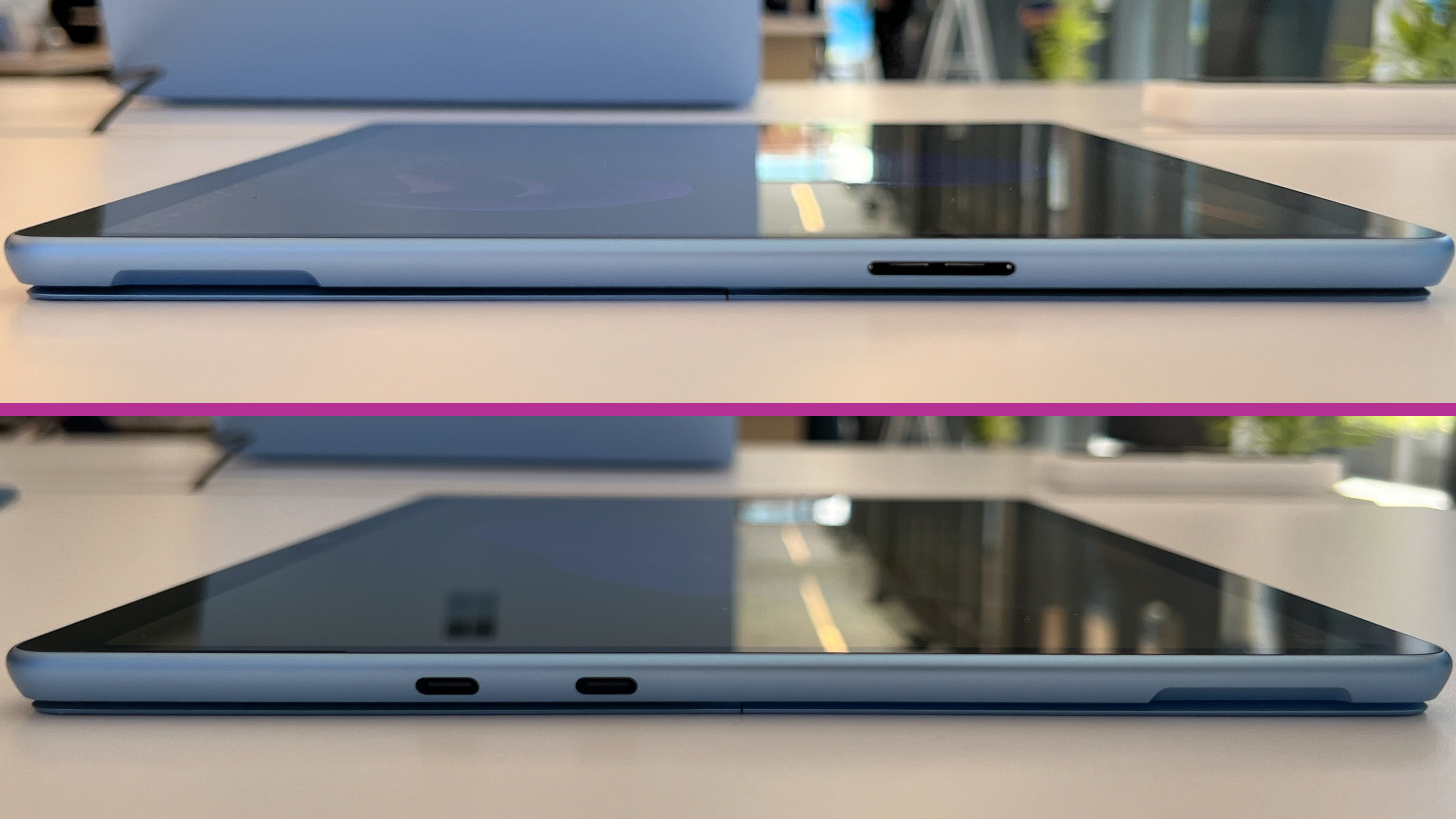
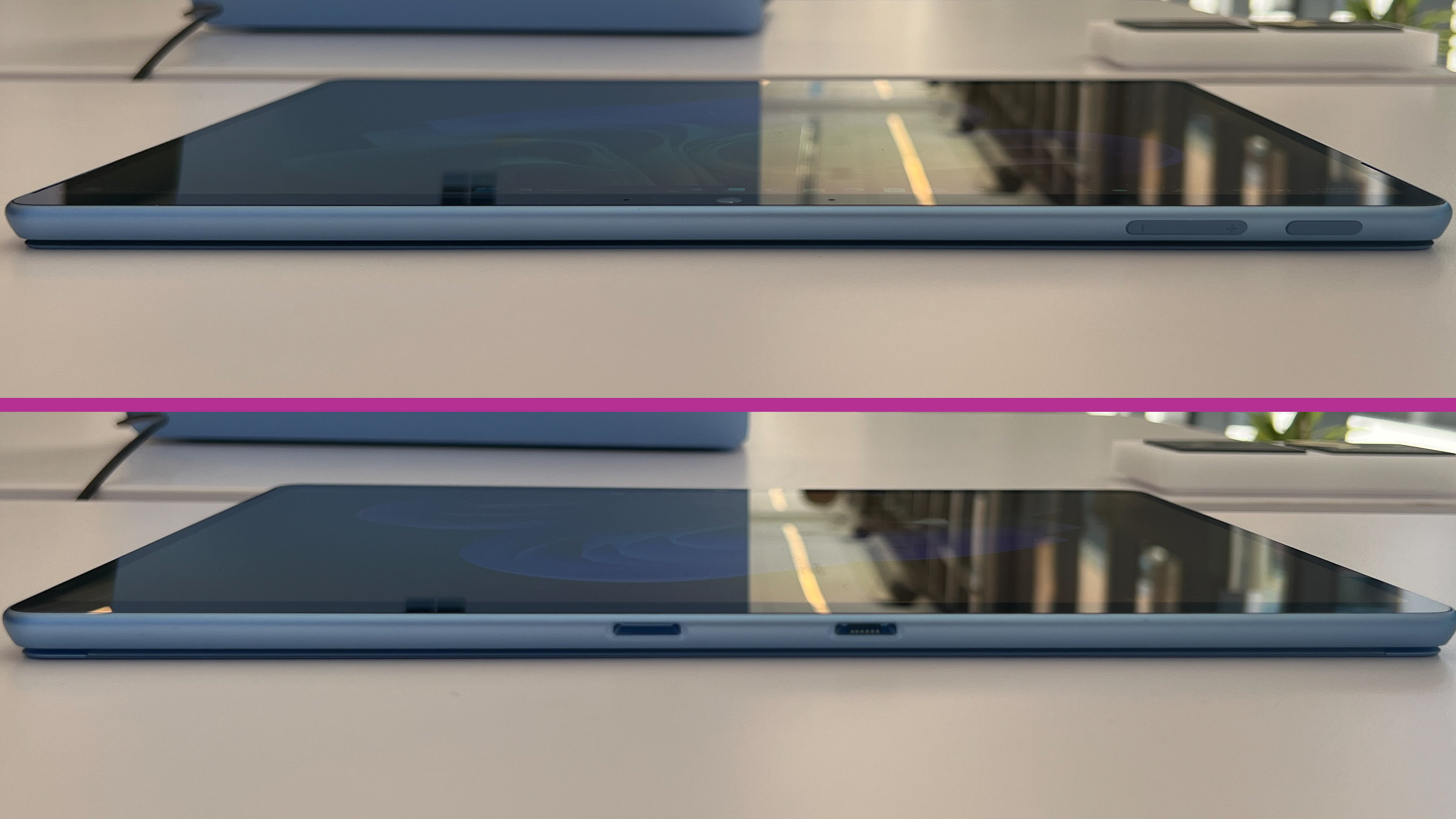
The keyboard docking pins on the tablet's side also take both the new Surface Pro Flex keyboard as well as previous Surface keyboards so if you already have one, you don't necessarily need to upgrade.
There's also the new Slim Pen, which sits in a trough above the key deck, which can be a bit of a pain to dig out, but it's not insurmountable. There are also a few new accessibility features built into the new Flex Keyboard like haptics and better contrasting keycaps.
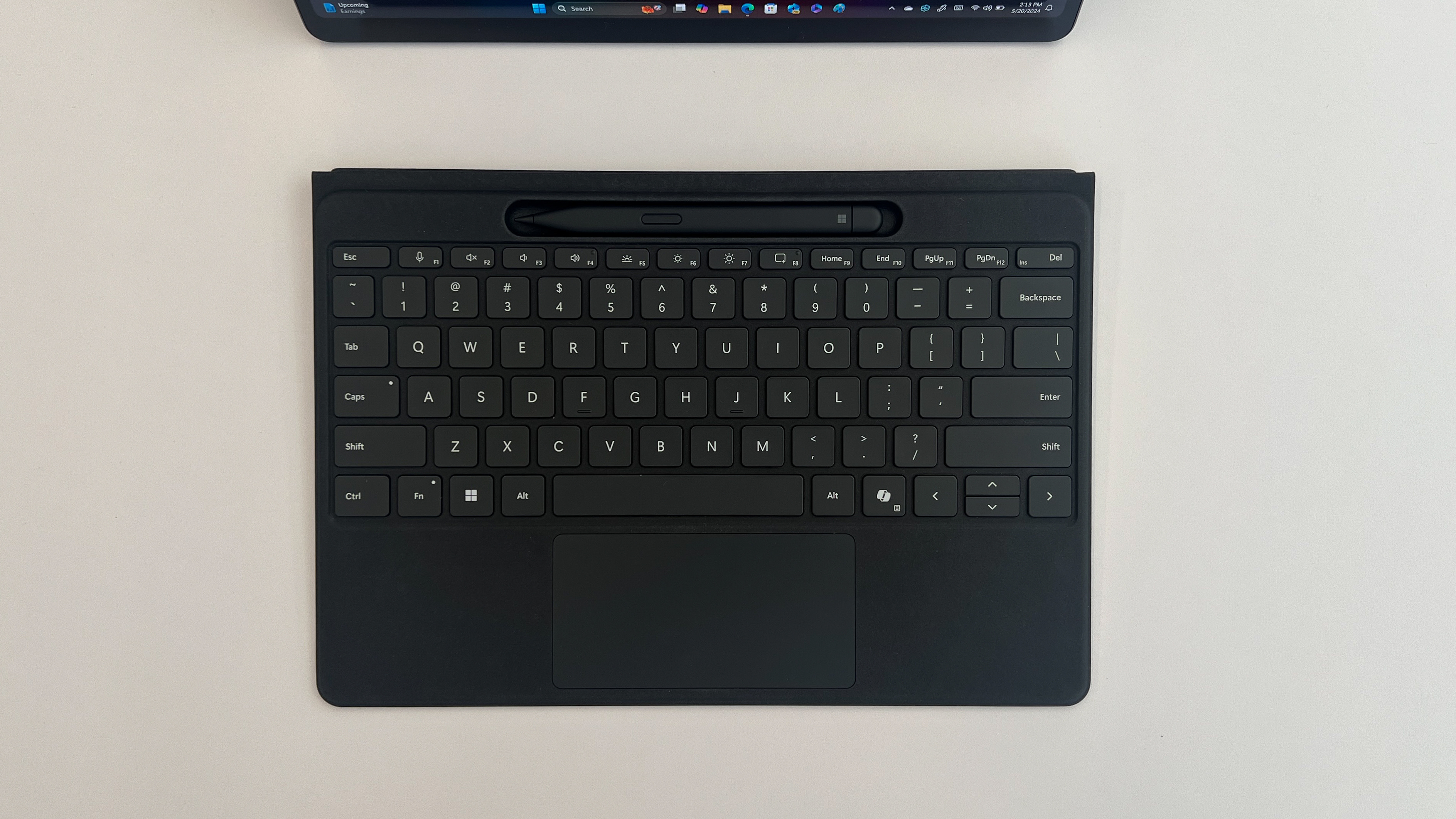
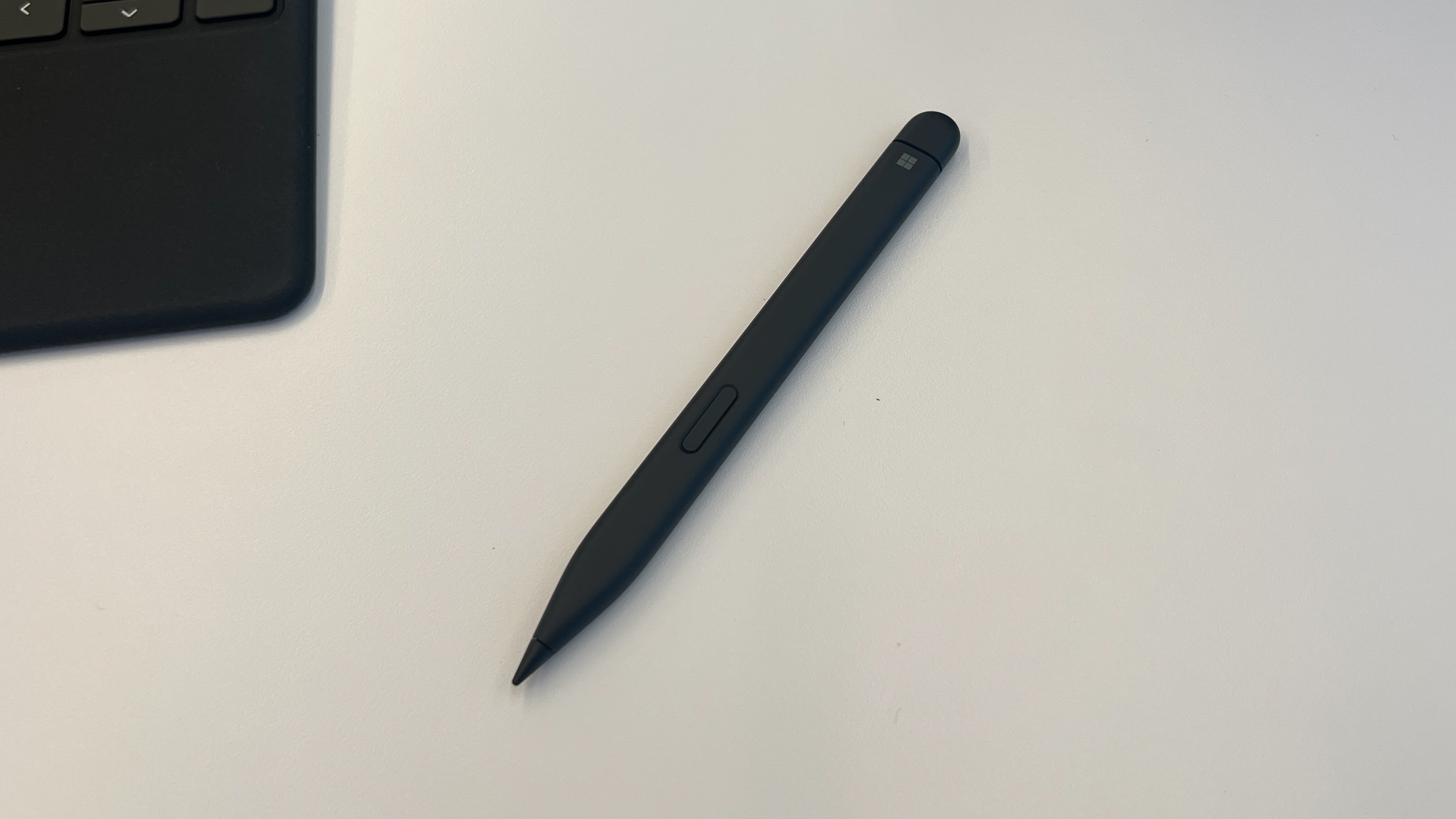
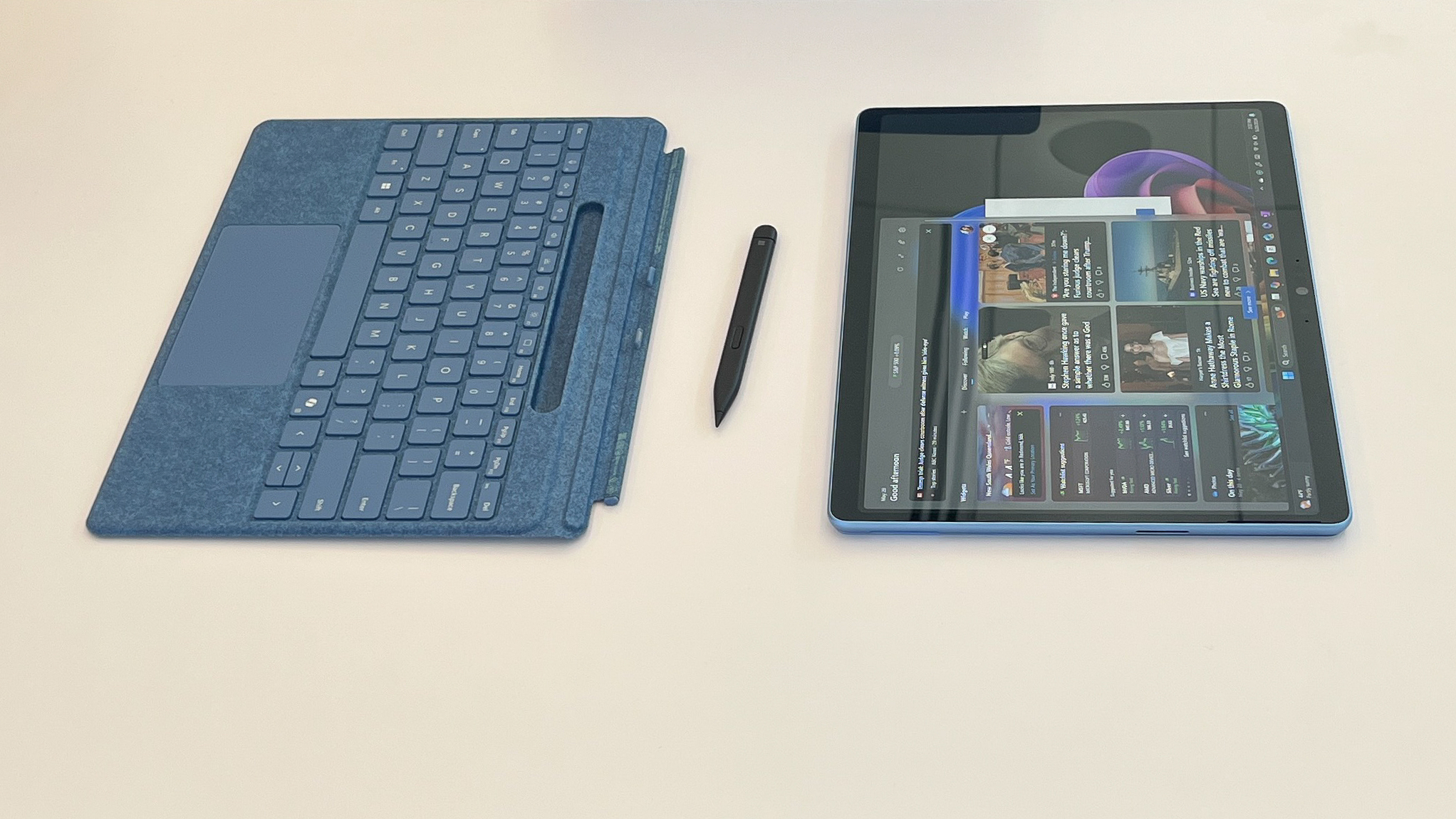
I wasn't able to do too much performance testing with the Surface Pro, so it's too soon to assess how well Microsoft has done with improving the compatibility and performance of Windows on Arm, but all signs seem to be pointing in the right direction on this front.
I haven't tested the battery life either, but I absolutely believe the claimed battery life of 14 hours, which is very much in line with what an Arm chip is capable of, even with an OLED display, and the LCD version could very well get even longer battery life.
All of that remains to be seen once we get a production unit in hand to put it through more rigorous testing, so stay tuned.
Microsoft Surface Pro: Price & Availability
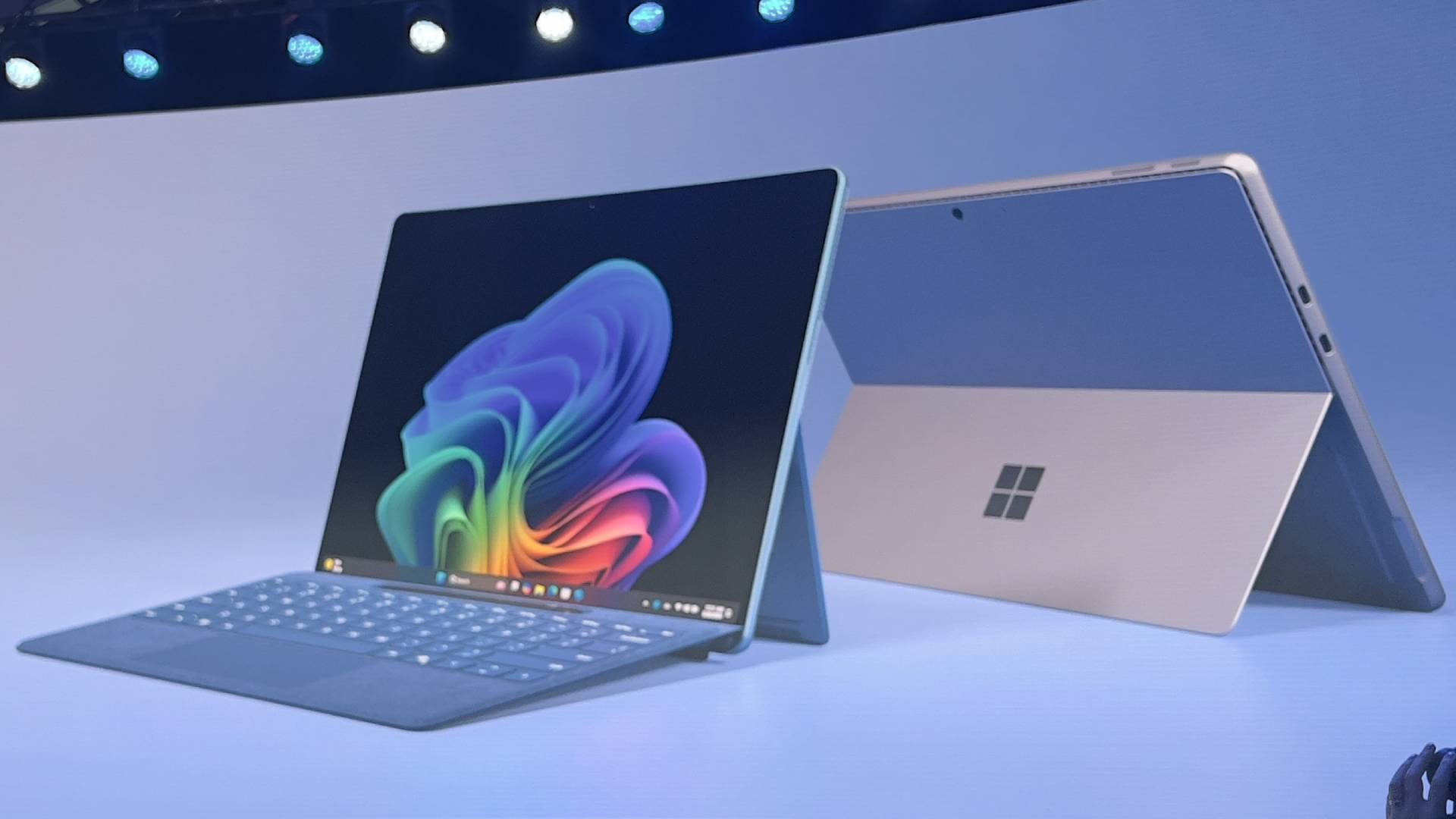
Pre-orders for the Microsoft Surface Pro are live in the US, UK, and Australia, with deliveries starting on June 18, 2024.
The Surface Pro with LCD display, Qualcomm Snapdragon X Plus, 16GB LPDDR5 RAM, and 256GB PCIe SSD storage. Upgrading to 512GB storage will bring that price up to $1,199.
The base OLED model of the Surface Pro will cost you $1,499.99/£1,549/AU$2,699, and has the more powerful Qualcomm Snapdragon X Elite SoC, 16GB LPDDR5 RAM, and 512GB PCIe SSD, but it can be upgraded up to 32GB RAM and 1TB PCIe SSD storage as well.
Microsoft Surface Pro: Early verdict
In the end, how well the Microsoft Surface Pro performs will be the biggest determination of whether this device is worth all of the hype around it, but from what I've seen in my limited time with it, everyone from creatives to office professionals may find a lot to love about it.
If the Qualcomm Snapdragon X chips live up to their promise and Microsoft is able to successfully translate x86 apps through its new Prism emulation layer, the versatility, compatibility, and style of the Surface Pro will absolutely give Apple iPad users a reason to be envious for a change.
0 comments:
Post a Comment